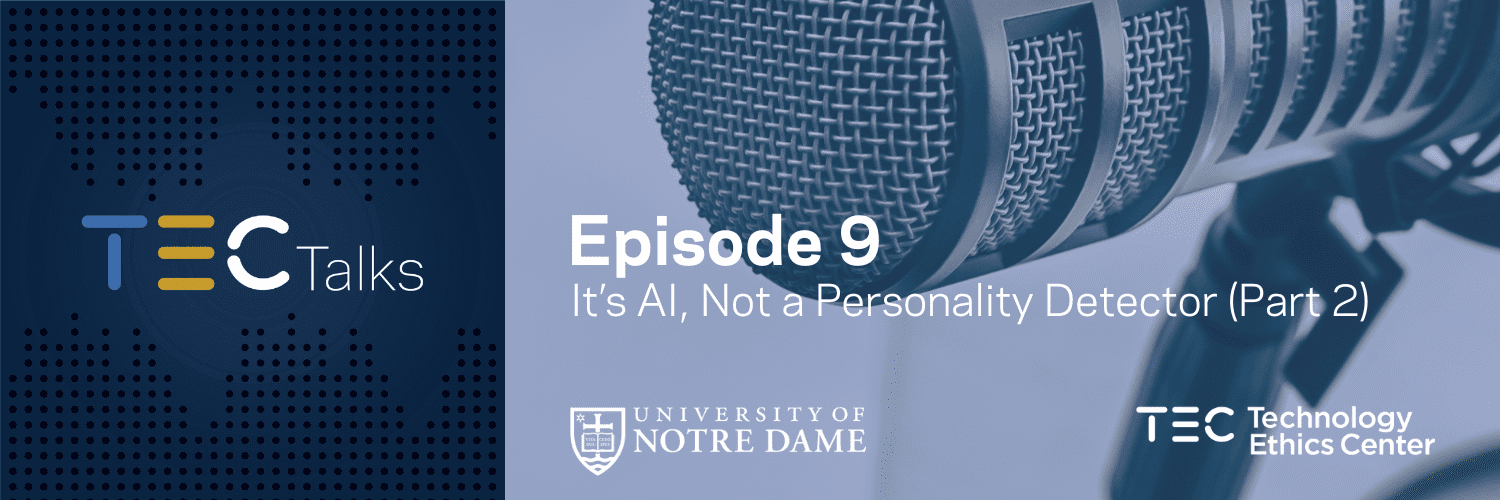It’s AI, Not a Personality Detector (Part 2)

In this second of a two-part episode, host Kirsten Martin continues her conversation with Luke Stark, an assistant professor in the Faculty of Information and Media Studies at Western University in London, Ontario, and Jevan Hutson, an associate at Hintze Law PLLC. Luke researches the historical, social, and ethical impacts of computing and artificial intelligence technologies, and Jevan‘s practice focuses on the intersection of privacy, security, and data ethics. They came on the show to talk about a paper they coauthored titled “Physiognomic Artificial Intelligence,” which appeared in the Fordham Intellectual Property, Media and Entertainment Law Journal. In the first episode, Luke started with the troubling history of physiognomy and phrenology. These two pseudosciences were widely discredited in the early 20th century, but their notions that people’s external appearances can be a way to access internal truths about them have made a comeback in the form of AI systems that purport to be able to perform this type of analysis. Jevan also discussed some of the troubling commercial applications in areas like hiring, education, and criminal justice where we’re already seeing this “physiognomic AI” deployed. Part 2 picks up with Kirsten asking Jevan about the menu of regulatory options he and Luke propose in the paper to remedy the fundamental problems with these systems. Jevan describes why they think physiognomic AI should be barred completely and the existing legal frameworks through which that might happen. Kirsten adds that the gap between AI ethicists and other technologists is larger in this area than just about any other, and Luke suggests computer vision isn’t the only field of study where physiognomic impulses can still be found.
Additional Resources
Presented by Notre Dame Technology Ethics Center
- Paper Discussed in the Episode: “Physiognomic Artificial Intelligence”
- Luke’s Bio
- Jevan’s Bio
- Episode Transcript
At the end of each episode, Kirsten asks about another scholar in tech ethics (or several) whose work our guest is particularly excited about. Luke and Jevan highlighted three:
- Deb Raji (Mozilla Foundation)
- Catherine Stinson (Queen’s University)
- Jennifer Lee (ACLU of Washington)
